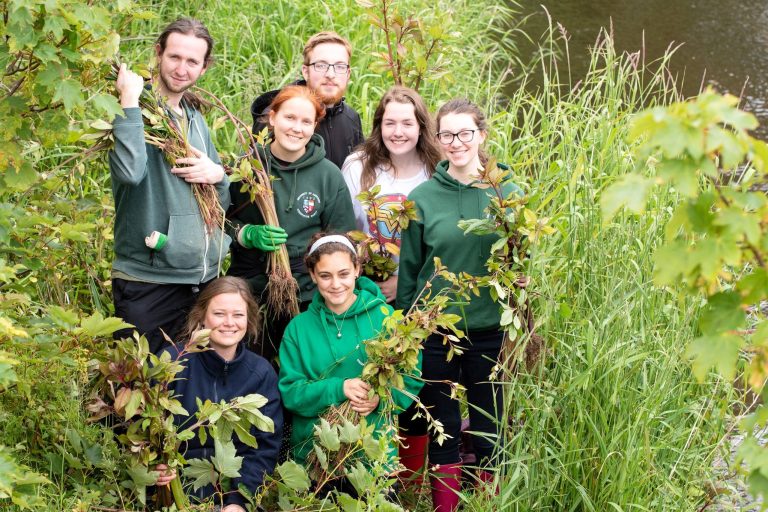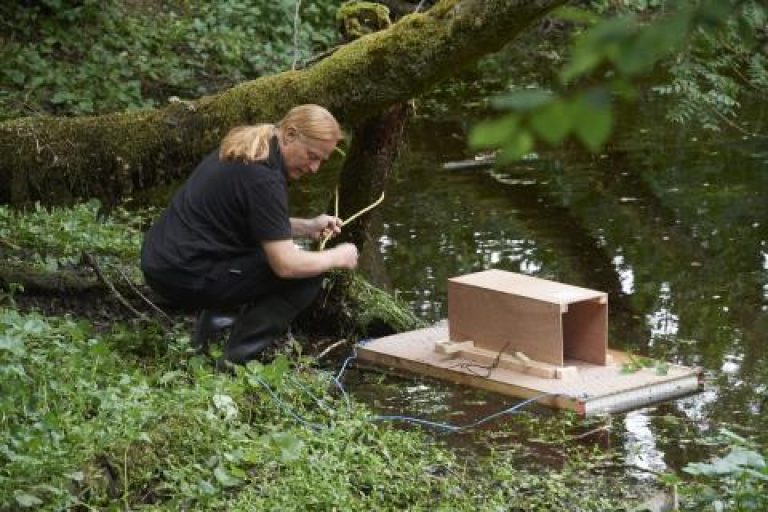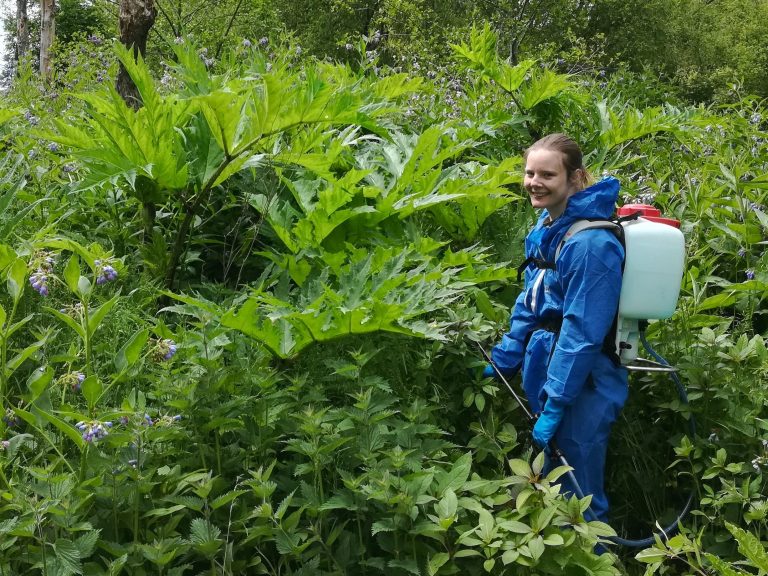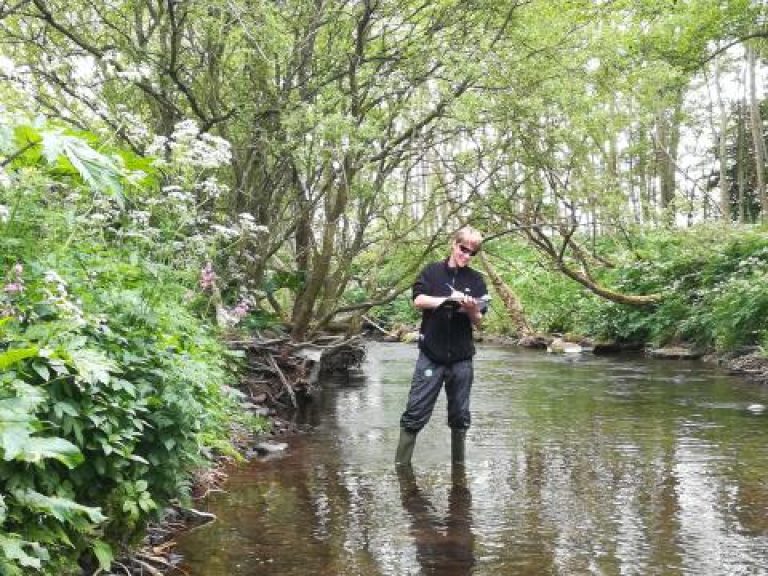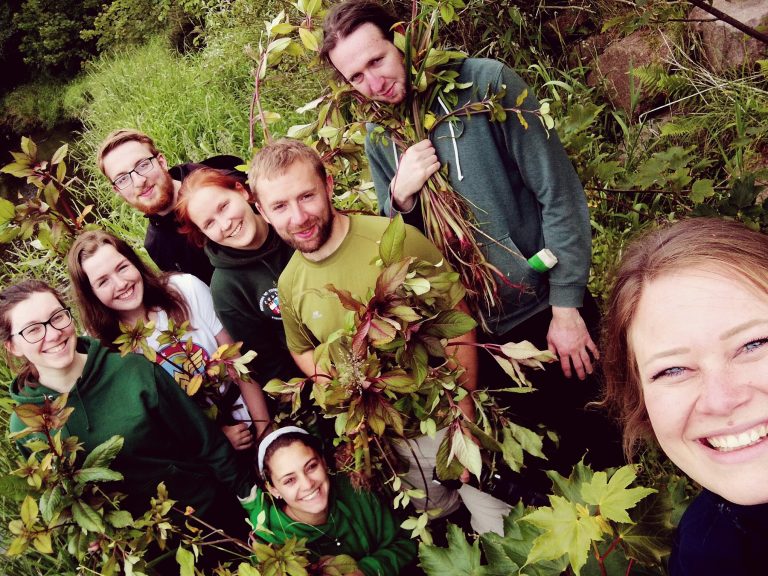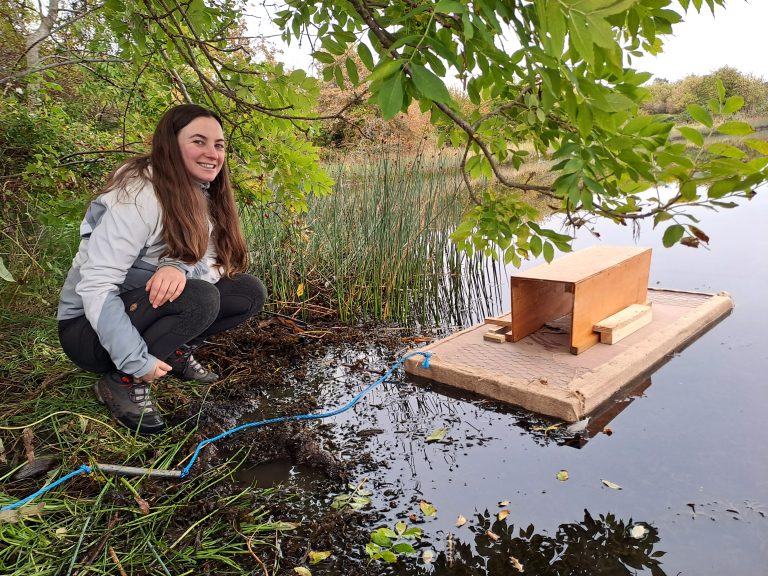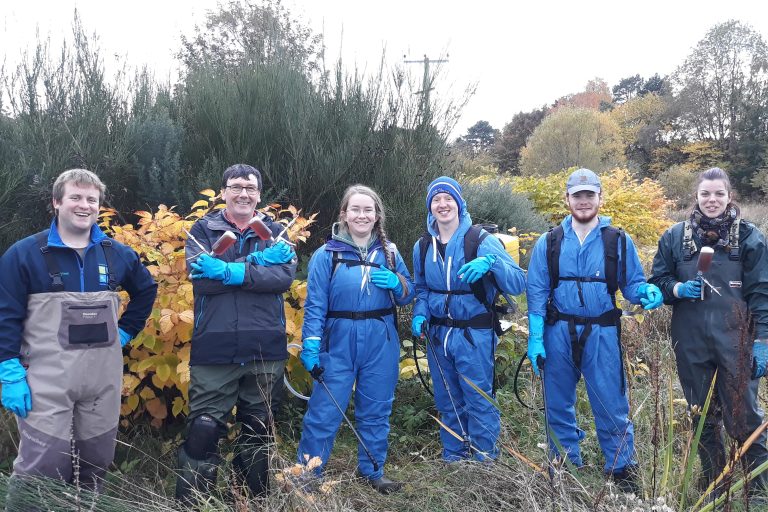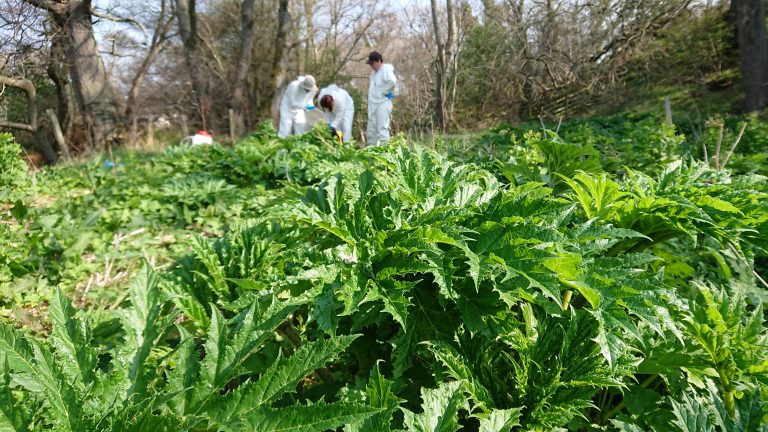What we can offer
Volunteering with us will provide an excellent opportunity to gain practical experience, work as part of a major conservation project, work with volunteers and learn specifically about invasive species and more generally about countryside management. This would suit someone who is looking to enter a career in the conservation sector or has an interest in the countryside, ecology, or conservation or anyone simply looking to get outdoors, meet people and make a difference to their local environment.
Individual volunteering. Our team welcomes individuals who want to volunteer and help us carry out practical conservation work. This can take the form of taking part in ad hoc sessions when you have time to give and if you prefer to gain experience in a specific activity, or a more formal placement over a set period to gain a variety of experiences. Placements may be through regular e.g. one-day-a-week participation over a period or a block placement during holidays.
Research Projects. We are happy to discuss supporting student projects, research work and practical coursework etc. If this might be of interest then please get in touch.
Group volunteer activities. We can offer opportunities for student groups, societies or classes to volunteer with the Scottish Invasive Species Initiative. These take the form of Conservation Volunteer Days which offer great practical experience where you will gain knowledge and skills, connect with the local environment, get to know each other better and have some fun while giving something back.
Anything else! We’d love to hear from you if you have any skills or hobbies you think would be beneficial and would help support our project. So, if you are an avid photographer or drone pilot, blogger, vlogger, videographer, artist, kayaker or social media guru – get in touch.
